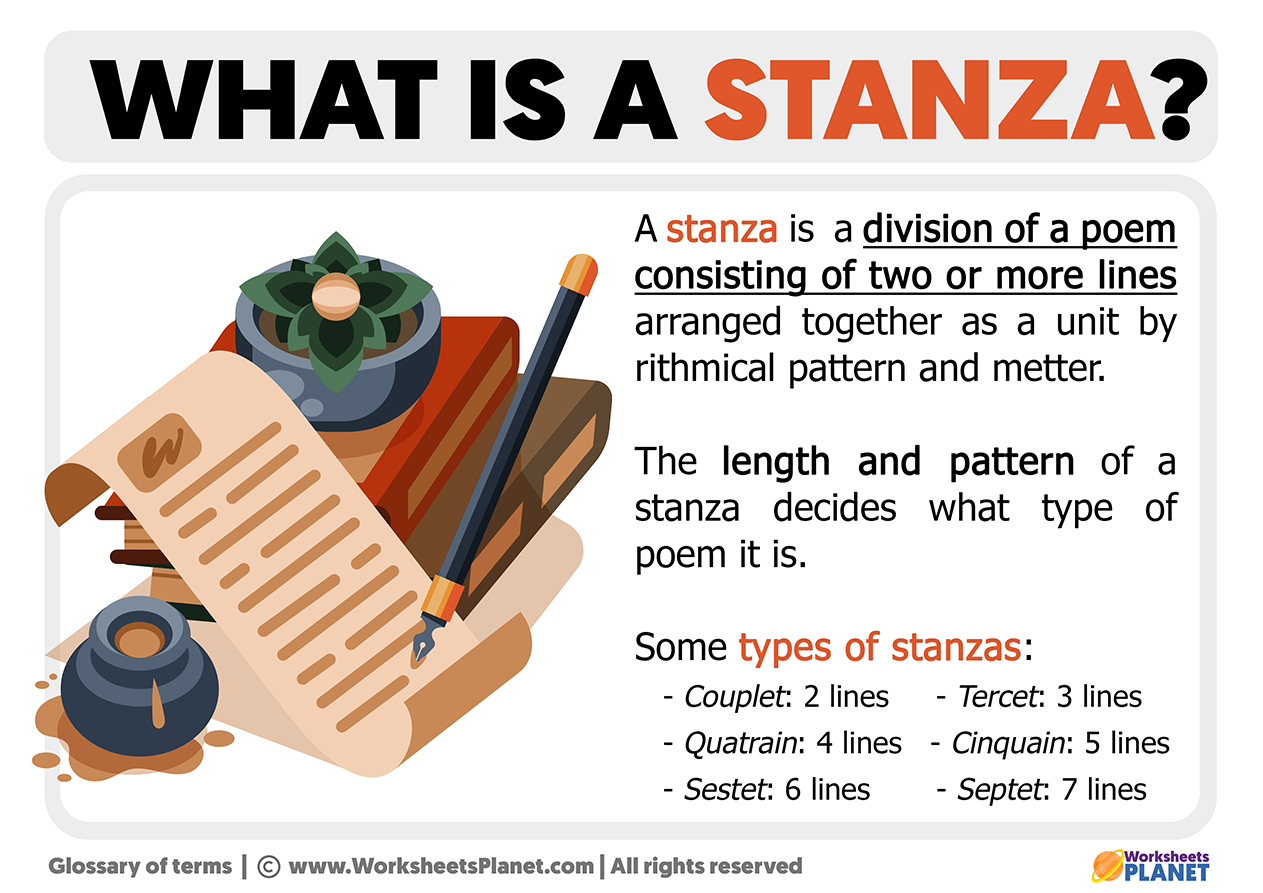A stanza is a set of verses arranged together, with shared characteristics and separated from other stanzas by a punctuation mark (period or semicolon) and a blank space in the poem. In other words, we can say that the stanza in poetry is the equivalent of a paragraph in prose.
In modern poetry, the stanzas do not necessarily have the same number of lines or the same rhyme, nor does a poem necessarily have a precise number of stanzas. But in the past, the classification was stricter. Have a look at the following definition:

Types of verses
The stanza types are classified according to the number of lines they contain. And in the traditional meter, they are subdivided into different types, depending on the kind of verse. You can find some examples below.
But first, we are going to remember that there are two types of rhymes:
- The consonant or perfect rhyme: which occurs when all the phonemes from the stressed vowel coincide; for example,
- Every fool
- confuses value and price
- The assonance or imperfect rhyme: in this type of rhyme the vowels coincide, but there is at least one consonant that does not coincide; for example:
- Better bird in hand
- than a hundred flying (rhymes in á-o).

